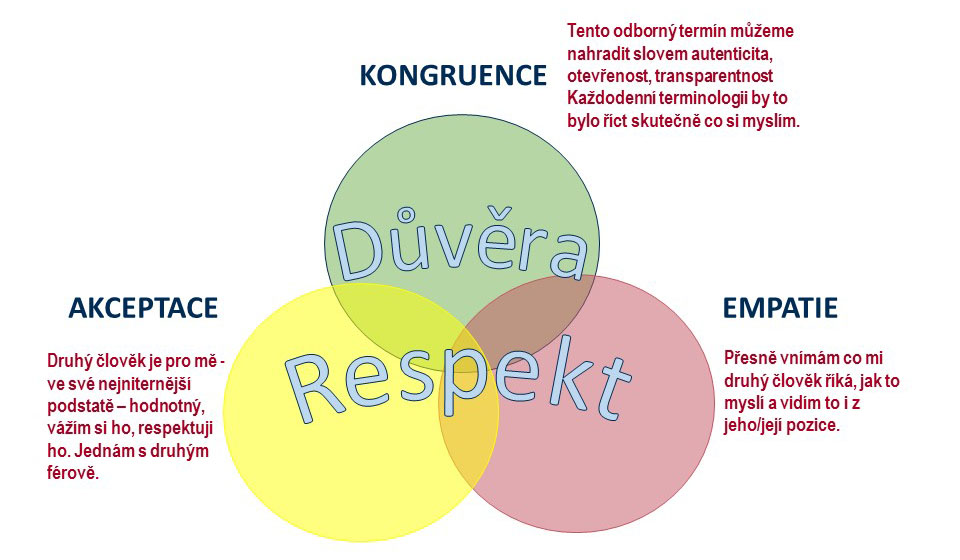Person centred approach
 The PCA is centrally about the quality of relationships and the elements that shape these relationshops. What is important is that these ideas have practical applications in training sessions so that a person can fully develop their potentials. A great deal of knowledge about communication, coaching, leadership and experiential learning have their roots in this approach.
The PCA is centrally about the quality of relationships and the elements that shape these relationshops. What is important is that these ideas have practical applications in training sessions so that a person can fully develop their potentials. A great deal of knowledge about communication, coaching, leadership and experiential learning have their roots in this approach.
The approach is characterized by concepts such as trust, empathy, authenticity, quality of presence, respect, acceptance of the other as a person with integrity, and the importance of interpersonal relationship.

This picture - or its variants - is known by many managers who have completed training of soft skills. They are arguably the most important concepts and attitudes that underlie the quality of interpersonal relationships and good communication. But not many people know that the originator of these ideas (this picture and its variants) was, psychologist Carl Rogers.
Being the originator of the person-centred approach, Rogers deeply influenced many areas where interpersonal relationships are important - this applies to both theory and practice. Originally a clinical psychologist and psychotherapist, he also developed the concept of a student-centred learning/approach furthering ideas of learning and education and the more general issues of power and status. He also studied and influenced organizations and relationships in politics. In a rigorous study of hundreds of prominent psychologists of the 20th century, Rogers was placed in 6th place. Among psychotherapists, the study ranked him at 2nd place only behind Freud (Haggbloom et al).
The latest research in neuroscience (‘brain research’), which led to the models AGES and SCARF, confirmed Rogers’ many formulations and practices. This applies to all elements of the SCARF model (such as status and personal power, human autonomy, relationships and respect - fairness), and particularly two features in the AGES model (Rogers' idea of ‘quality of presence’ contains the notion of attention, and working with emotions are the essence of the PCA approach). The principles of high quality communication, coaching and experiential learning also have their obvious roots in the PCA approach.


